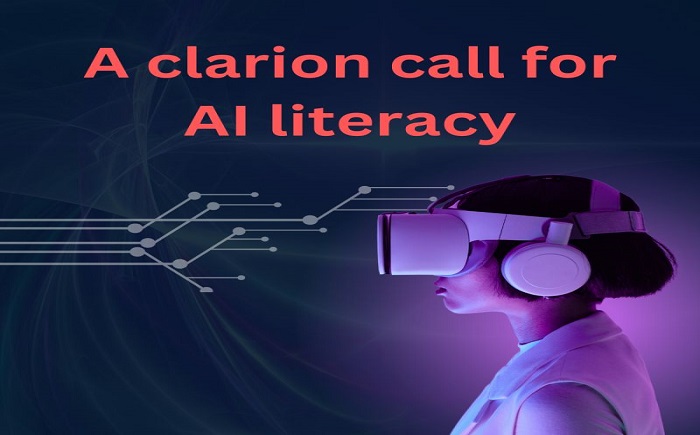
The rapid growth of artificial intelligence, especially generative AI, seems to be creating a deep chasm between those who know about AI and those who don’t. AI literacy is definitely the need of the hour.
It is time for Indian higher education to quickly gear up so that our students systematically learn about artificial intelligence, its uses and its long-term implications.
The times now have dramatically changed from November of 2022 when ChatGPT was released, causing a quite a stir among academics with emphasis on keeping it out of the classrooms.
Structured training is needed for all students across all streams so that they can become familiar with artificial intelligence, which is making deep inroads in all spheres of life.
Let’s take two examples.
In journalism schools, the students can be taught about various applications which use AI to develop content. The results are quite fascinating.
In management, one can use support vector machine algorithm. What does SVM do? In technical terms, SVM finds “the optimal hyperplane in an N-dimensional space that can separate the data points in different classes in the feature space”. In simpler terms, it can be used for fraud detection, thereby helping businesses by not suffering losses.
Now when we take a closer look at the SVM example, we realize that while a student may find it difficult to grasp its technicality, the management student will find it a lot easier to understand how it can be used in a business environment.
It is here that AI literacy comes into play.
Indian universities must come together so that a strong and sustained effort can be made towards AI literacy. It is akin to the media practitioners who are working tirelessly towards media literacy.
The initial steps towards AI literacy have already been taken in another part of the world.
The Russell Group, an association of 24 universities in the UK including Oxford University and Cambridge University, have already initiated the process towards AI literacy.
“Universities will support students and staff to become AI-literate. Staff should be equipped to support students to use generative AI tools effectively and appropriately in their learning experience. Universities will adapt teaching and assessment to incorporate the ethical use of generative AI and support equal access. Universities will ensure academic rigour and integrity is upheld. Universities will work collaboratively to share best practice as the technology and its application in education evolves,” said a Russell Group statement.
Emails: aitechinfluencer@gmail.com, deepakgarg108@gmail.com
info@aitechinfluencer
© AiTechInfluencer. All Rights Reserved. Design by AiTechInfluencer